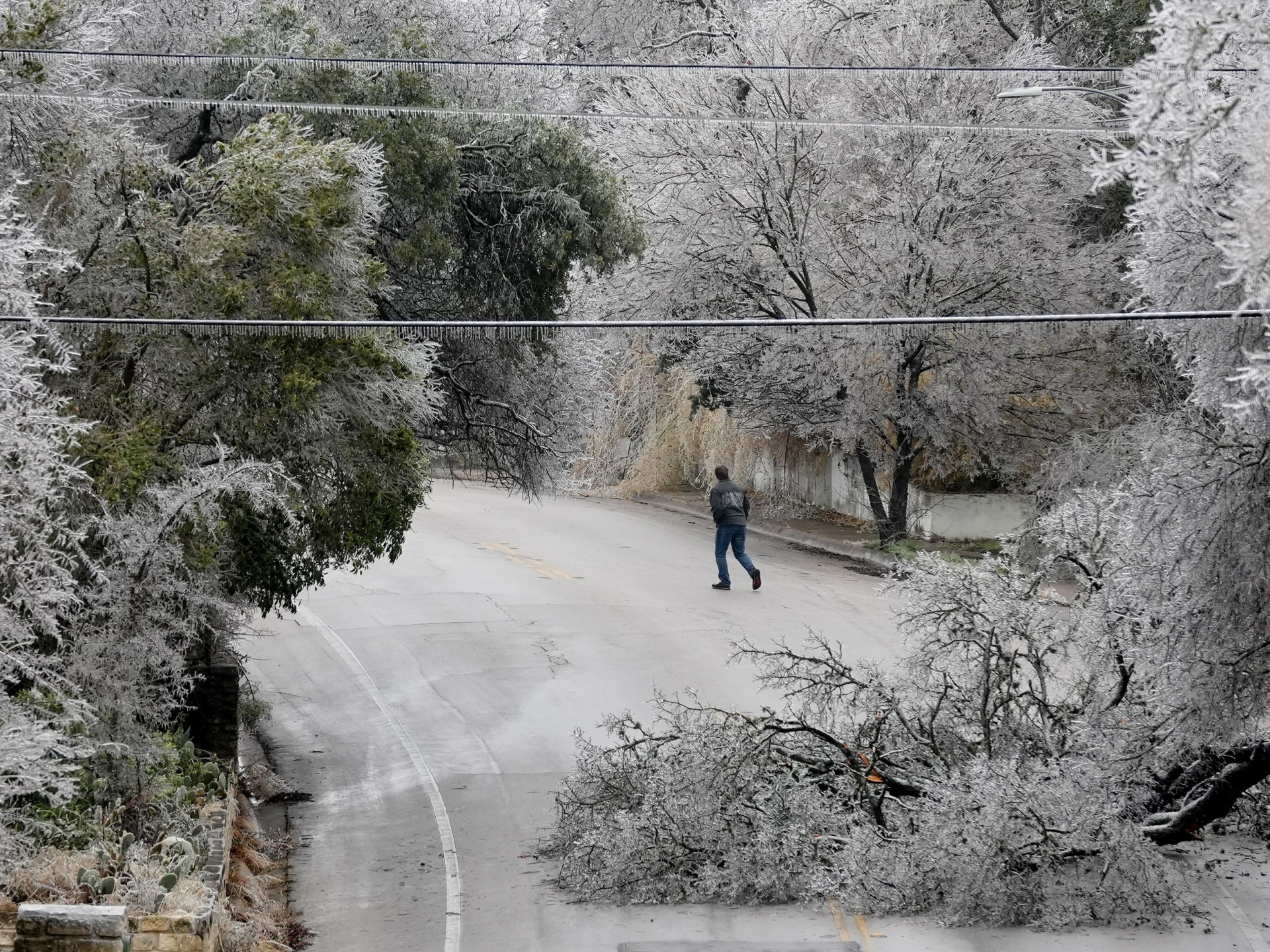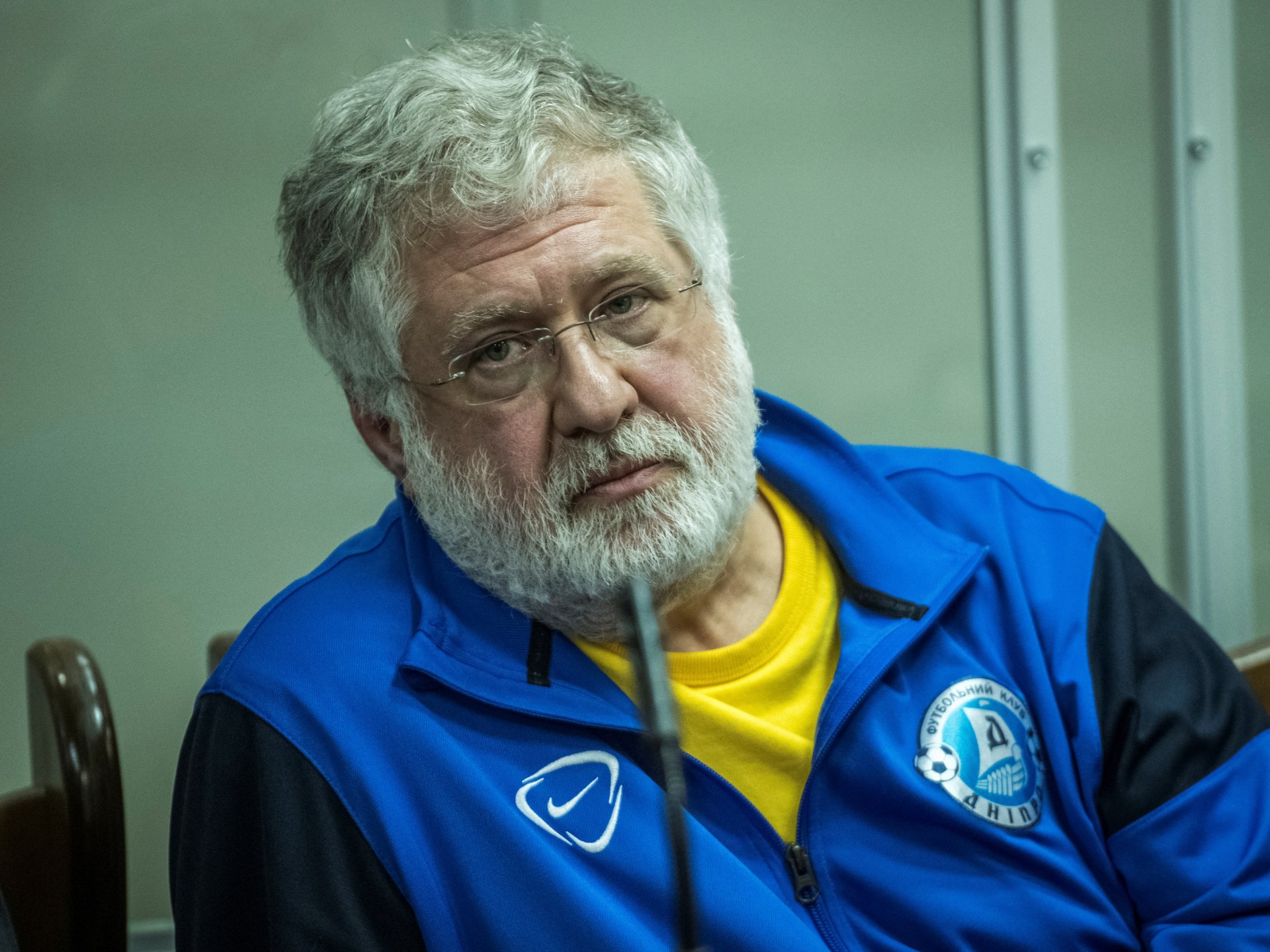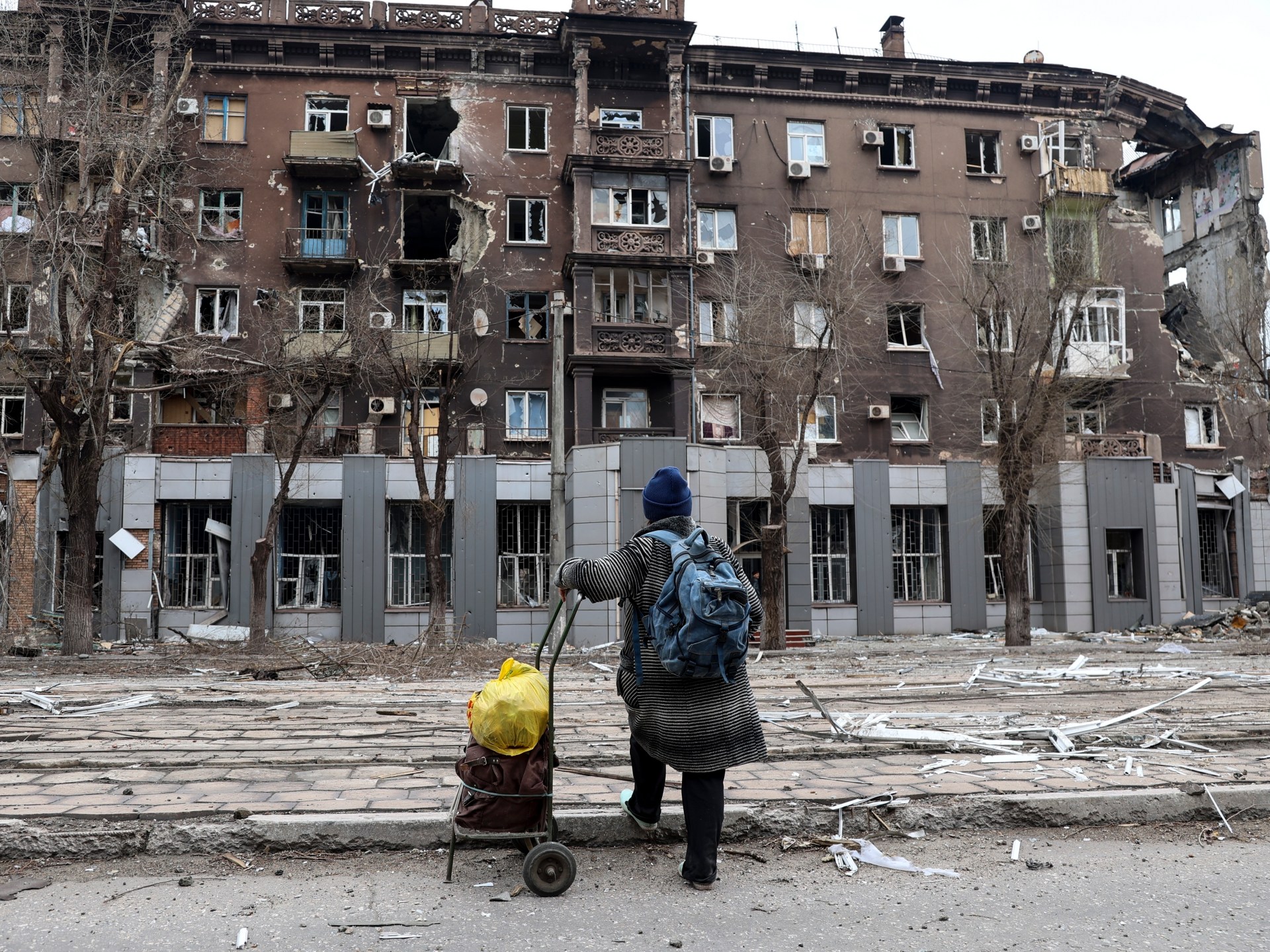‘Extremely dangerous’ Arctic blast hits northern US and Canada | Weather News
A “powerful” blast of Arctic cold has swept across the northeastern United States and parts of Canada, threatening record low temperatures over the weekend.
The National Weather Service in the US warned on Friday that the “impressive” cold front would plunge temperatures 15 to 35 degrees below average on the Fahrenheit scale (7 to 17 Celsius) across a broad swathe of the country, from the Upper Mississippi Valley to New England.
“Even though it’s a short-lived blast, conditions will be extremely dangerous,” it said in an advisory.
Temperatures are expected to hit -79C (-110F) atop New Hampshire’s Mount Washington, the highest peak in the US Northeast.
And the National Weather Service bureau in Caribou, Maine near the border with Canada warned of “life-threatening blowing snow”, leading to blizzard conditions.
“This is an epic, generational arctic outbreak,” the agency said, adding that it expected the “lowest wind chills in decades or, in some cases, the lowest ever recorded”.

Schools across the northeast cancelled their Friday classes, including in Boston, where the mayor’s office declared a “cold weather emergency” through Sunday.
The Manchester School District in New Hampshire noted that, as children were released to go home on Thursday, the wind chill made temperatures drop to -26C (-15F).
“In these conditions, frostbite can develop in as little as 30 minutes,” the district said on Twitter. “This is simply too cold for students who walk home.”
The polar blast also delayed events including the US National Toboggan Championship, a sledding competition held in Camden, Maine, where temperatures are forecasted to plummet to -37C (-35F) by early Saturday.
Officials across the region have warned of heightened risks for hypothermia and other cold-related conditions as temperatures continue to dip.
The low temperatures are linked to cold, dry air that has been pushed down from Canada, propelled by high-altitude currents, Bob Oravec, a senior forecaster at the National Weather Service, told The Associated Press news agency.
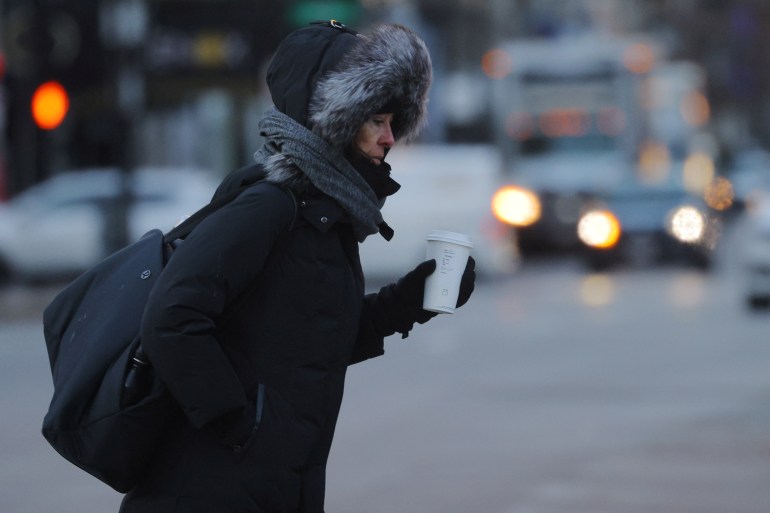
North of the US border, Canadian authorities also warned of dangerous conditions.
Wind and extreme cold warnings were in place across large sections of Atlantic Canada – including Nova Scotia, New Brunswick, and Newfoundland and Labrador – and the major cities of Montreal and Toronto were also under extreme cold advisories, according to Environment Canada.
“We’ll see temperatures that are really, brutally cold,” Environment Canada senior climatologist David Phillips told CTV News this week. “It’s really a one-and-a-half-day wonder.”
Toronto Pearson International Airport advised travellers to be patient as the cold could lead to delays. “If travelling, please pack some patience as [ground crews] may need to take breaks to warm up,” the airport tweeted on Thursday evening.
In Montreal, temperatures were expected to hit between -38C and -48C on Friday and Saturday. “Extreme cold puts everyone at risk,” Environment Canada said in an advisory on Friday morning.
“Cover up. Frostbite can develop within minutes on exposed skin, especially with wind chill,” it said.
The cold-weather system is expected to hit the Mid-Atlantic region by Saturday before continuing off the coast by Sunday. In the meantime, parts of the Great Lakes and US Northeast are expected to receive lake-effect snow into Saturday night.
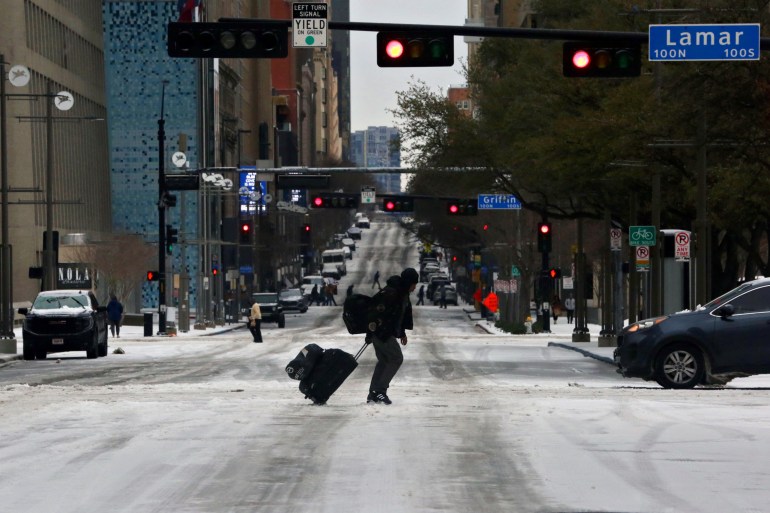
The US South, meanwhile, continues to experience frosty conditions after an ice storm in the region halted flights and killed at least 12 people, largely from traffic accidents.
Temperatures briefly warmed on Thursday before sinking back below freezing in parts of Texas overnight with commuters once again waking up to dangerously icy roads.
The transportation department for the city of Austin, Texas, said on Wednesday that it had responded to more than 300 collisions for the week as it called on drivers to “avoid travel unless absolutely necessary”. An estimated 74 collisions were reported on Wednesday alone.
First responders also continued to receive calls about downed trees and snapped power lines across the state, where 240,000 customers were without electricity early on Friday. That was down from 430,000 outages the previous day, according to the website PowerOutage.us.
“It’s possible some customers may be without power for 12-24 hours,” Austin Energy, the city’s publicly owned utility, tweeted.
Elton Richards, Austin Energy’s vice president of field operations, told reporters during a news conference on Thursday: “I’ve been doing this over 20-something years and I haven’t seen this much devastation outside of tornadoes up north.”
But relief from the icy temperatures is expected soon. Forecasters predicted things to warm up in the South going into the weekend. Temperatures in Austin are expected to rise to 22C (71F) by Monday.


